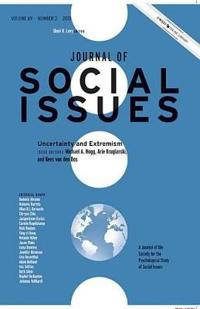

Uncertainty and Extremism Upplaga 1
- Upplaga: 1a upplagan
- Utgiven: 2013
- ISBN: 9781118843635
- Sidor: 500 st
- Förlag: John Wiley & Sons
- Format: Häftad
- Språk: Engelska
Om boken
Extremism in society is the source of enormous human suffering and represents a significant social problem. This issue of the Journal of Social Issues assembles a set of 11 empirical and theoretical articles from leading social psychologists to examine the psychological relationship between uncertainty and extremism. The key question that is examined is whether, to what extent and in what fashion do feelings of uncertainty lead people to behave individually or collectively in ways that can be considered extremist – does uncertainty play a causal role in zealotry, fundamentalism, attitudinal rigidity, ideological orthodoxy, intolerance of dissent, violent social disruption, authoritarian leadership, and so forth.
Åtkomstkoder och digitalt tilläggsmaterial garanteras inte med begagnade böcker
Mer om Uncertainty and Extremism (2013)
I november 2013 släpptes boken Uncertainty and Extremism skriven av Michael A. Hogg, Arie Kruglanski, Kees van den Bos. Det är den 1a upplagan av kursboken. Den är skriven på engelska och består av 500 sidor. Förlaget bakom boken är John Wiley & Sons som har sitt säte i Hoboken.
Köp boken Uncertainty and Extremism på Studentapan och spara pengar.
Referera till Uncertainty and Extremism (Upplaga 1)
Harvard
Hogg, M. A., Kruglanski, A. & Bos, K. van den (2013). Uncertainty and Extremism. 1:a uppl. John Wiley & Sons.
Oxford
Hogg, Michael A., Kruglanski, Arie & Bos, Kees van den, Uncertainty and Extremism, 1 uppl. (John Wiley & Sons, 2013).
APA
Hogg, M. A., Kruglanski, A., & Bos, K. van den. (2013). Uncertainty and Extremism (1:a uppl.). John Wiley & Sons.
Vancouver
Hogg MA, Kruglanski A, Bos K van den. Uncertainty and Extremism. 1:a uppl. John Wiley & Sons; 2013.



















